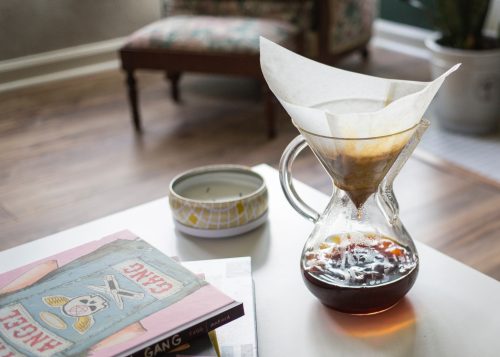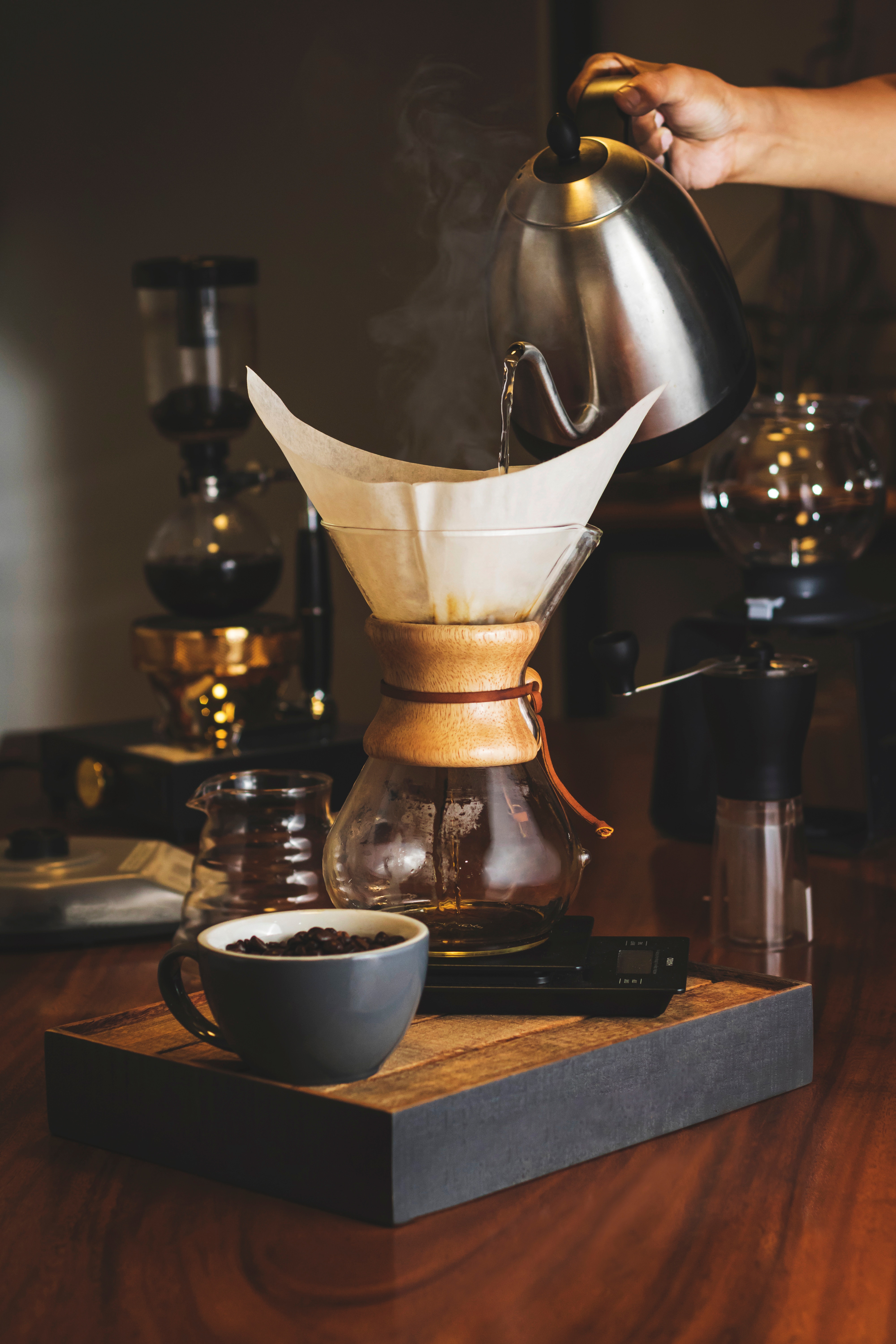All coffee lovers know that everything that is involved in the coffee making process is important. Whether it is the soil the coffee was grown in, how it was roasted, or the temperature of the water it was brewed in, it all matters.
How you filter your coffee is also important, since the filter is one of the last things to touch your coffee before your lips do.
Paper filters and permanent filters are widely used among coffee drinkers, and there is much debate about which one produces the best cup of coffee.

#1. Paper Filters
The primary benefit of using paper filters is that they are super cheap and disposable, so there is no clean-up necessary. You simply dump your used filter into the garbage can.
Paper filters are also biodegradable, so you can place a paper filter full of old coffee grinds into a compost, or even in your garden if you’re growing plants that love acidic soil.
However, since white paper filters are bleached, they are less environmentally friendly than brown ones. So if that’s an important factor to you, just buy brown filters.
Paper filters are pretty cheap. You can typically purchase 200 for a dollar and some odd change at your local grocery store, or even at the gas station.

They will cost more in the long run, as you have to keep buying them, but if you only make coffee a few times per week, the cost is really minuscule.
Most automatic coffee pots are designed for paper filter use too, so unless you’re looking to buy a new machine, you may be stuck in the paper filter world.
Paper filters filter out a lot more micro-elements and oils than permanent filters. These oils are called diterpenes, and they have been shown to raise cholesterol in coffee drinkers.
You will drink more of them by not filtering your coffee at all, such as with a French Press or making it cowboy style. So, therefore, paper filters are regarded as the healthiest filter option.
#2. Permanent Filters
Permanent filters can last up to seven years, and are ultimately cheaper than paper filters. The different is that permanent filters cost more upfront, versus paper filters that cost very little, but need to be purchased every few months.
The number one downfall of using a permanent filter is that they require cleaning after every use. They also don’t filter as well as paper filters, in most cases.
In terms of their effect on taste, many coffee experts argue that this is totally dependent on the material your permanent filter is made out of. A metal filter will give your coffee a bit of a metallic taste, but that can also be caused by using a cheaper machine as well.
It can be hard to differentiate whether it is the coffee, the machine, or the filter. Permanent filters filter out less than paper filters, so the coffee generally tastes more earthy, since natural coffee elements and oils make their way into the cup.
One of the most notable differences between paper filters and permanent filters is that permanent filters will produce a darker cup of coffee.
If that’s what you prefer, then you’ll want to buy a machine with a permanent filter, or buy just the filter and hand drip the coffee yourself.
Conclusion
Whether paper filters or permanent filters produce a better cup of coffee depends on your preferences. When you think of brewing your own coffee as something that should be easy, quick, and relatively cheaper to do, then you’ll probably find yourself a big fan of paper filters.
However, if you think about the environment, the elements of coffee, and maximum natural taste, you may find yourself brewing with a permanent filter. Both filters get the coffee brewing job done, and produce a tasty cup of coffee; it’s just a matter of what the coffee experience means to you.
If you’re trying to fully experience all the elements of the coffee bean, you might opt for a permanent filter. If you’re just drinking coffee for the caffeine, paper is the route for you. There has always been, and will continue to be a variety of ways to produce a great cup of coffee.